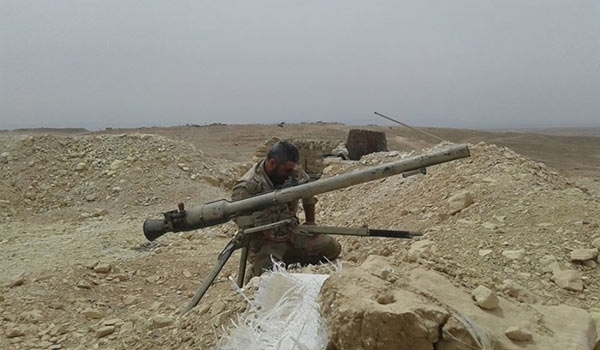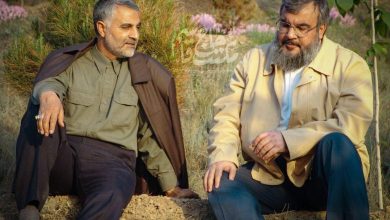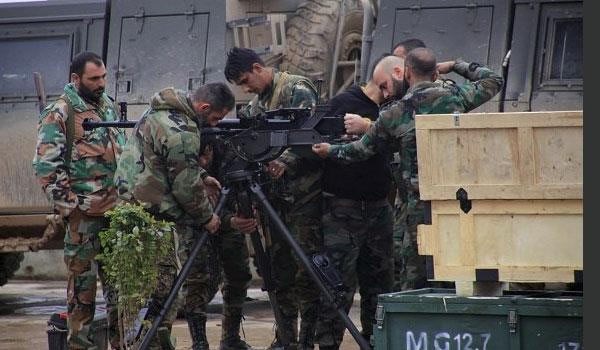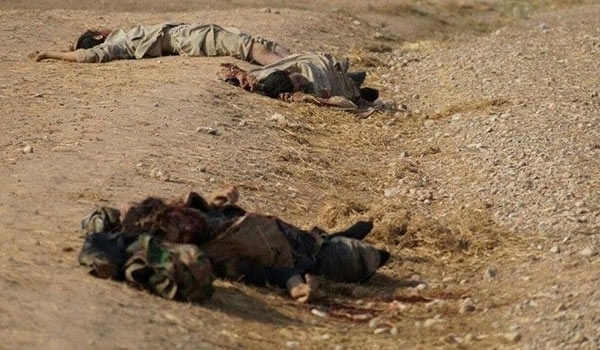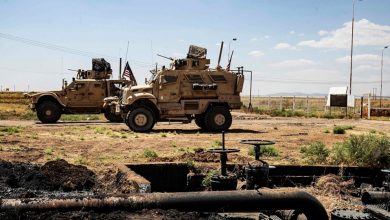ISIL Commanders Killed in Syrian Army, Hezbollah Joint Operation in Qalamoun
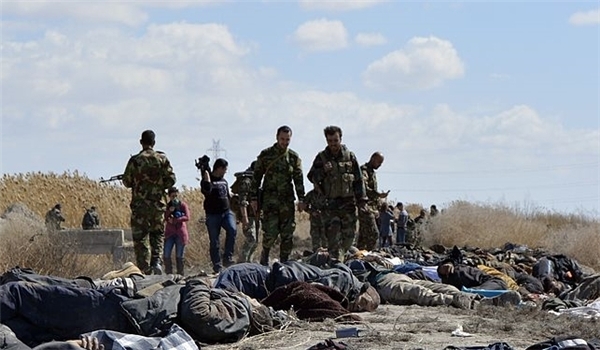
The Syrian army and Lebanese Hezbollah resistance forces targeted the meeting of the ISIL leaders in the Northern parts of Al-Qalamoun on Tuesday.
The artillery units of the army and the resistance movement hit the Takfiri terrorists’ meeting in al-Qalamoun.
A number of ISIL commanders, including Abu Mossab Lahaf, Ossama Sho’ara, Ahmad Vardeh and Abu Katabeh were killed in the joint forces’ attack on the meeting.
On Sunday, the Lebanese Hezbollah resistance movement started its first phase of military operations against the ISIL Takfiri terrorists in Al-Qalamoun after purging Al-Nusra Front terrorists from the mountainous region along the Syria-Lebanon border.
The Hezbollah operations cover areas from al-Qasir region to the hilltops of al-Aqua, Ras Ba’albak and al-Jreijeer in Al-Qalamoun.
The Hezbollah fighters are using new tactics in their operations against the ISIL in Al-Qalamoun, including use of reconnaissance and missile-launching drones.
Hezbollah’s drones are due to find the precise location of ISIL hideouts in the region and then target them.
Last Tuesday, Hezbollah alongside the Syrian Army stormed the positions of al-Nusra terrorists in the nearby areas of Jreijeer and took control over this strategic spot.
The military sources said that the terrorists’ concentration center in Jreijeer was their last stronghold in al-Qalamoun.
Earlier this month, Hezbollah Deputy Leader Sheikh Naeem Qassem underlined that the Lebanese resistance movement will continue fighting against the Takfiri terrorists in Arsal border region.
“We will continue our battle in Arsal hilltops until uprooting the last terrorist in that region, but (protecting) the security of the city of Arsal is the duty of the Lebanese government that needs to be fulfilled,” the Lebanese Elnashra news website quoted Sheikh Qassem as saying.
The Lebanese deputy chief, meantime, pointed to the regional crises created by the West, and said, “The western countries are good at creating crises, but they are unsuccessful when it comes to ending them.”
